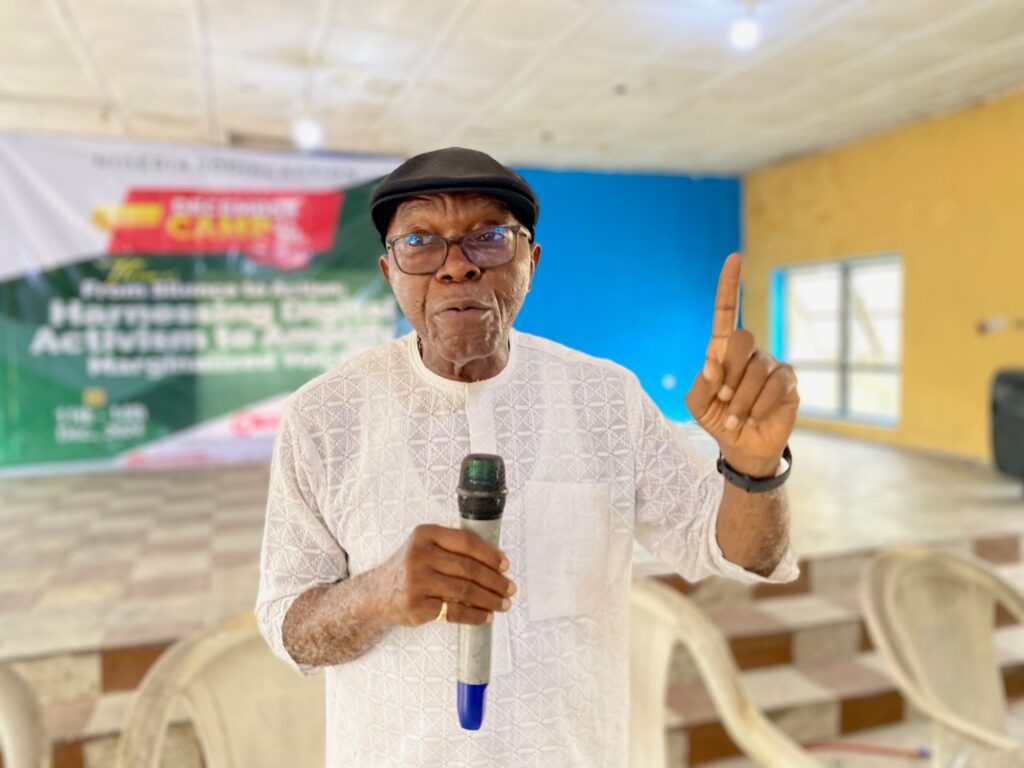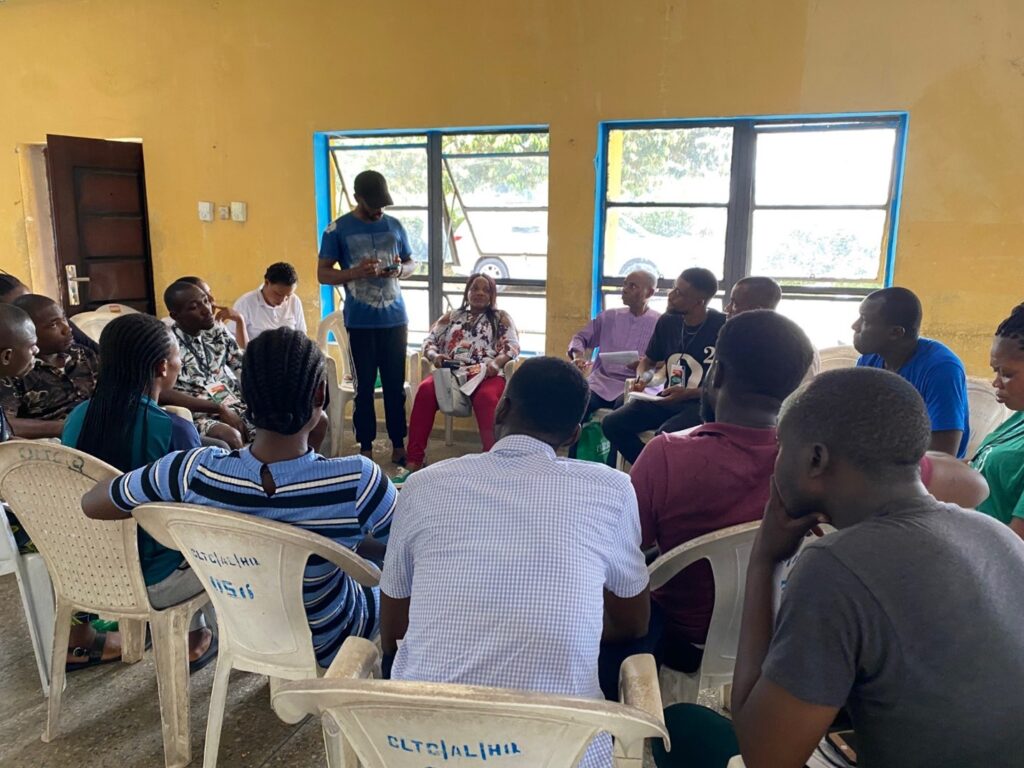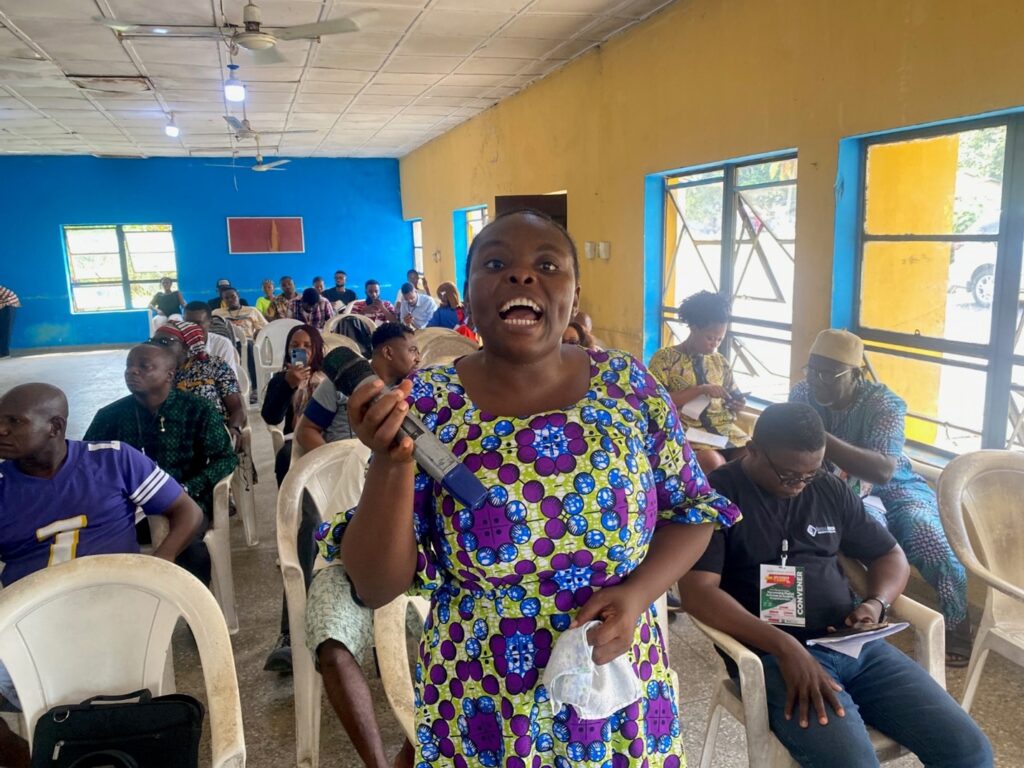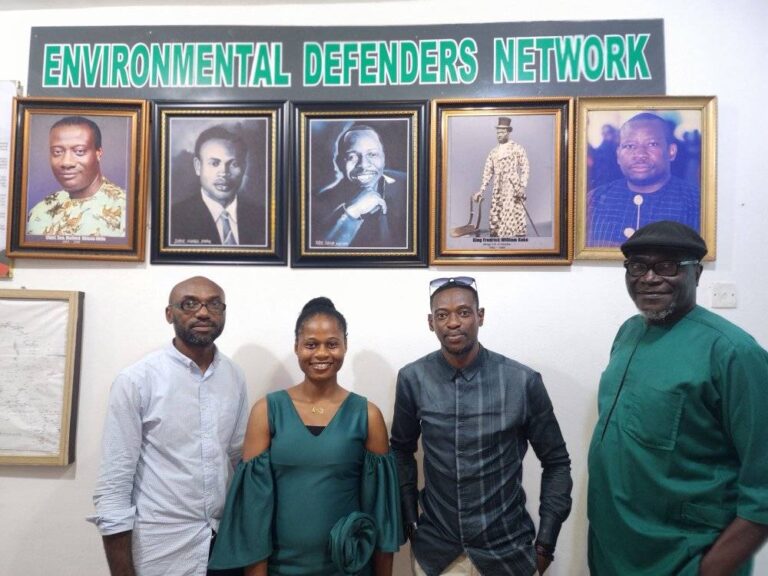The Nigeria Social Action Camp 2024: Harnessing Digital Activism for Social Change

The Nigeria Social Action Camp 2024, held from December 11-14 at the Leadership Training Centre in Aluu, Rivers State, was a transformative gathering of activists, civil society organizations, and community leaders. With the theme “From Silence to Action: Harnessing Digital Activism to Amplify Marginalized Voices,” the camp focused on equipping participants with the knowledge, tools, and strategies necessary to leverage digital platforms for advocacy, mobilization, and systemic change in Nigeria.
Background and Context
Nigeria’s socio-political and economic landscape remains marred by entrenched corruption, systemic inequality, and a disconnection between the ruling elite and ordinary citizens. Since the return to democracy in 1999, public disillusionment has deepened, with rising inflation, unemployment, and institutional decay characterizing daily life.
Against this backdrop, Nigeria’s youth have emerged as a formidable force for change, using digital platforms to amplify their voices, demand accountability, and organize movements such as the #EndSARS protests of 2020 and the mass protests of 2024. These events underscored the transformative potential of digital activism in uniting citizens, amplifying marginalized voices, and confronting systemic injustices.
Recognizing the importance of these tools, the Nigeria Social Action Camp 2024 sought to bridge the gap between online advocacy and grassroots mobilization. By focusing on digital skills and political education, the camp aimed to empower participants to lead impactful campaigns for human rights and social justice.
Setting the Stage for Action
On the first day, the camp began with a warm welcome from the National Coordinator of the Civil Rights Council (CRC) and Programme Officer of Social Action Nigeria, Arochukwu Ogbonna. Participants received camp materials and were briefed on the program’s objectives, rules, and expectations.
In the evening, the session moderator, Dr. Prince Ekpere of Social Action Nigeria, set the tone by reflecting on the current state of Nigeria, emphasizing the need for urgent, transformative action. Isaac Boti, Programmes Coordinator of Social Action Nigeria and a key figure in organizing the camp, highlighted its history of empowering grassroots activists and its potential to inspire systemic change.
Participants were further energized by Kunle “Wise Man” Ajayi, who led a solidarity song and shared insights into the advocacy efforts of the #EndBadGovernance movement. He encouraged resilience and determination, reminding attendees of their crucial role in shaping Nigeria’s future. Arochukwu Paul Ogbonna, Program Officer of Social Action, delivered an inspiring session on human rights and social justice, underscoring the critical role of digital tools in challenging oppression and fostering societal transformation.

Deepening Knowledge and Skills for Digital Activism
A key highlight of the camp was the political education lecture by Professor Eme Ekekwe from the University of Port Harcourt. Prof. Ekekwe provided a comprehensive analysis of the Nigerian state, emphasizing the divide between the ruling elite and ordinary citizens. He explored the socio-political challenges plaguing Nigeria—corruption, unemployment, inflation, and institutional decay—while highlighting the vital role of civil society in advocating for change.

Following this, ICT Consultant Kenneth Nwokon led an interactive workshop on digital activism. Using case studies such as the #EndSARS protests and the Arab Spring, he demonstrated how social media can amplify marginalized voices and mobilize communities. He also delved into combating misinformation, a critical barrier to credible activism, and explained how data analysis can refine advocacy strategies and enhance community mobilization efforts.
Practical Application of Digital Activism
The camp emphasized hands-on learning through workshops and practical sessions. Ibukun Omole facilitated a session where participants worked in groups to develop digital strategies addressing key societal issues, including human rights abuses, environmental degradation, and political oppression. Participants brainstormed solutions, identified challenges, and selected advocacy tools to address these critical issues effectively.
Later, Professor Richard Nwokocha delivered an impactful lecture on human rights and accountability in Nigeria, focusing on systemic barriers to justice, such as colonial legacies, weak institutions, and a lack of political will. Prof. Nwokocha urged greater civil society engagement in defending vulnerable populations, particularly women, and holding the government accountable.
Reflecting on Progress and the Way Forward
The final day of the camp was marked by reflection and discussions on the challenges and opportunities for activism in Nigeria. Participants shared personal takeaways, emphasizing the importance of sustained mobilization and solidarity in addressing systemic issues. The camp concluded with a closing ceremony where participants pledged to apply their new skills in advocating for social justice and human rights.

The Nigeria Social Action Camp 2024 was a resounding success, equipping participants with practical digital skills and political insights to amplify human rights advocacy and drive systemic change. The camp reinforced the importance of youth-driven activism and underscored the potential of digital platforms to mobilize communities, counter misinformation, and hold authorities accountable.
As Social Action Nigeria and the Civil Rights Councils continue their work to empower marginalized groups, the camp stands as a testament to the transformative power of collective action and digital tools in the fight for justice and equity.




